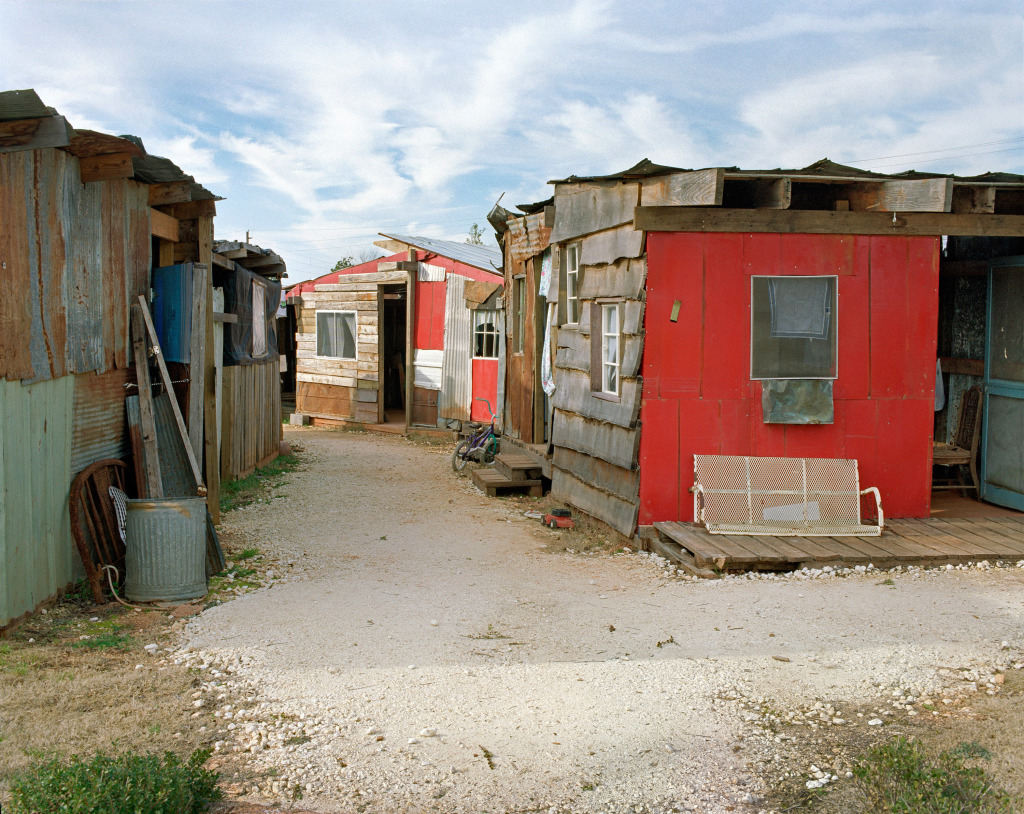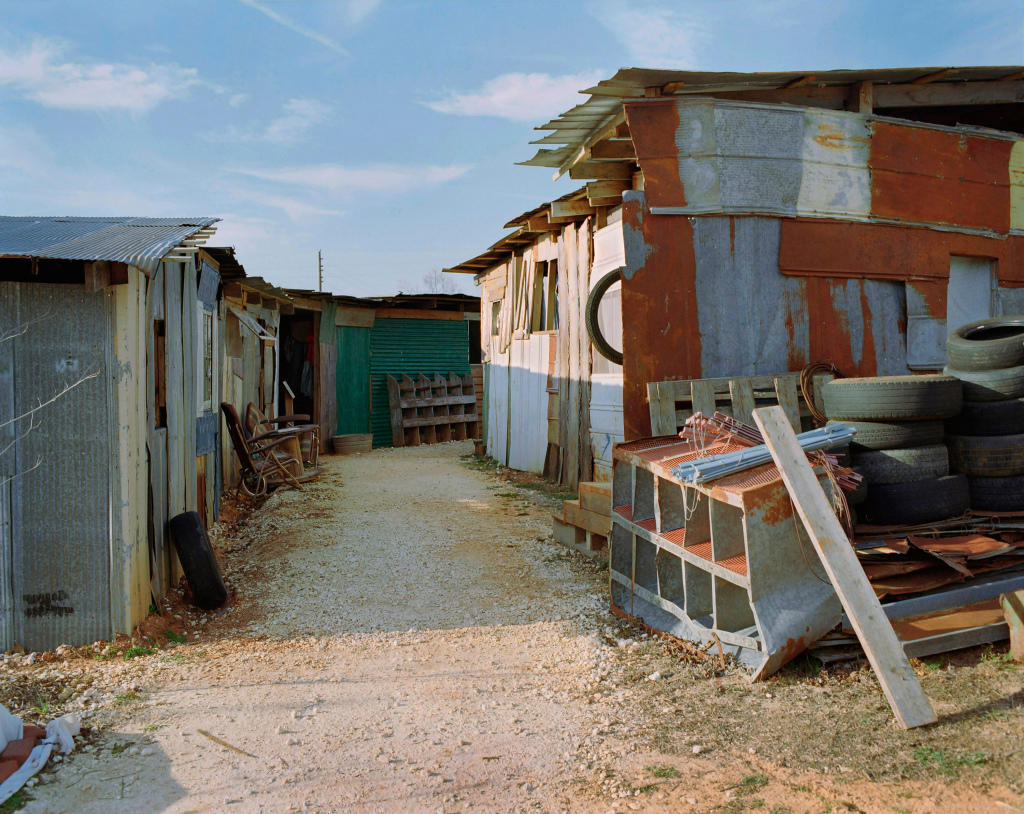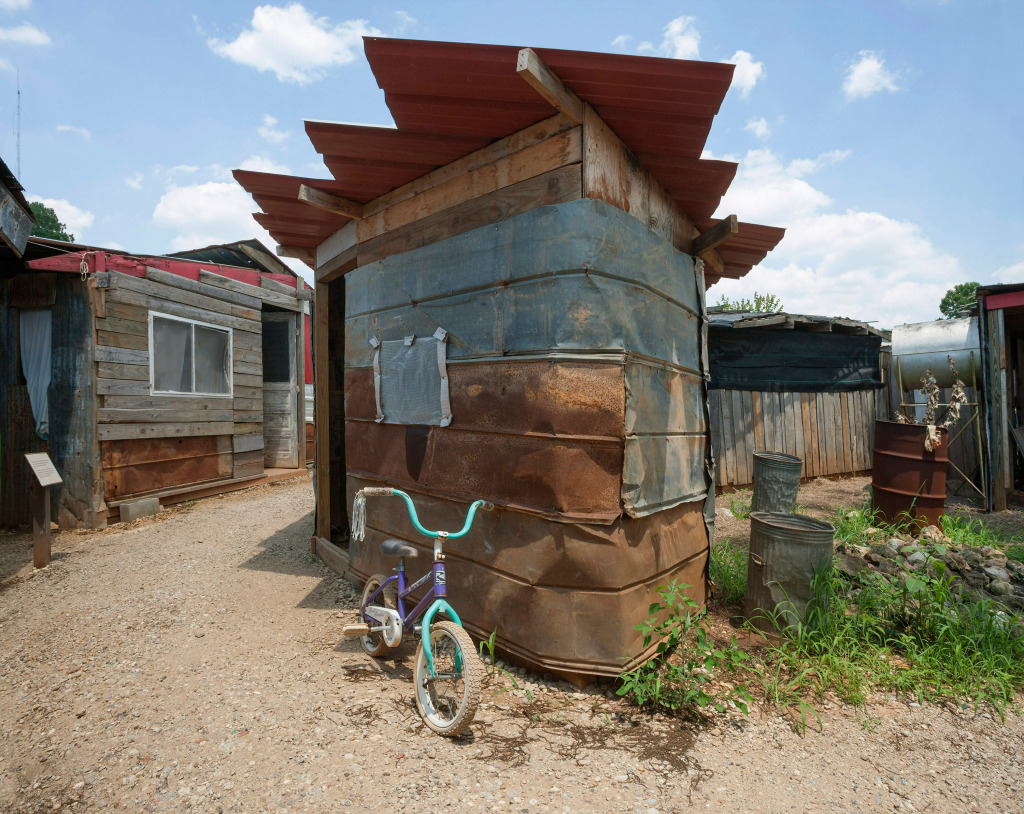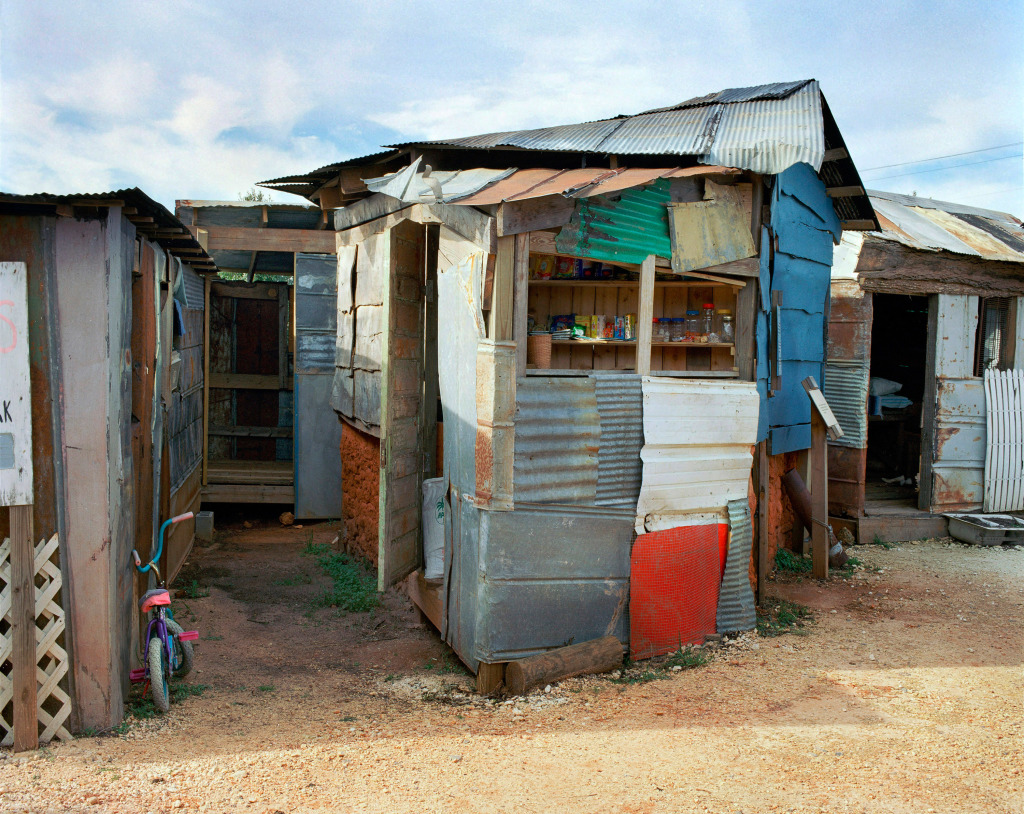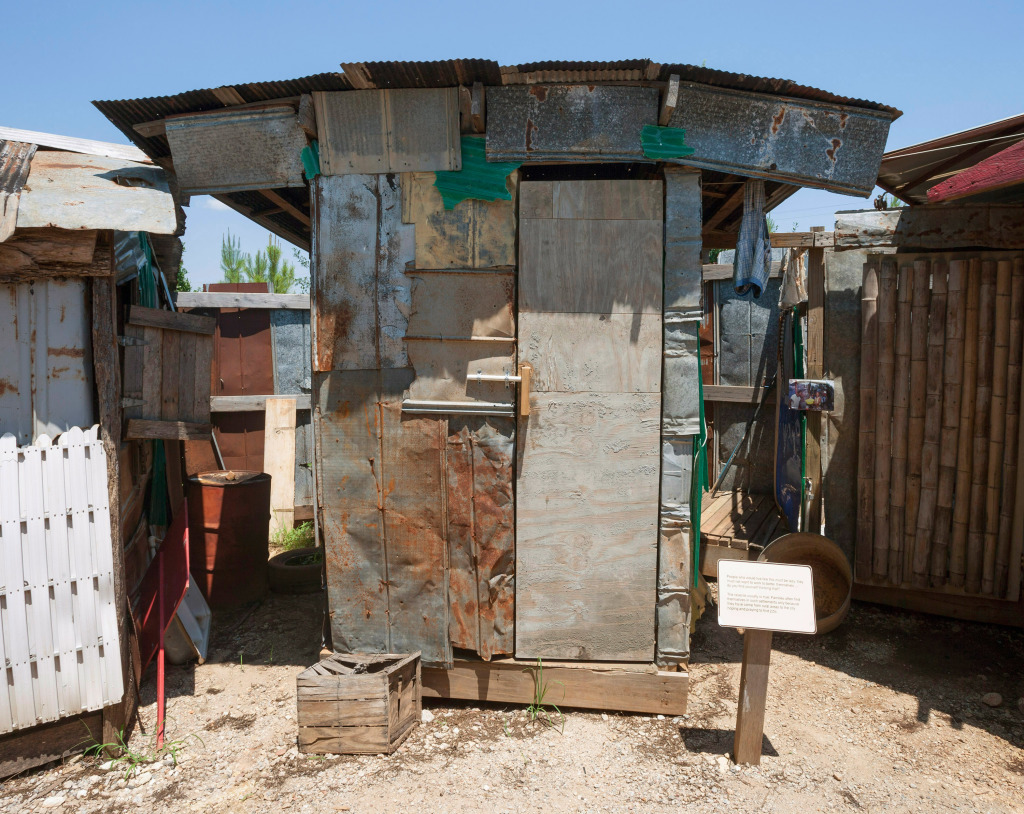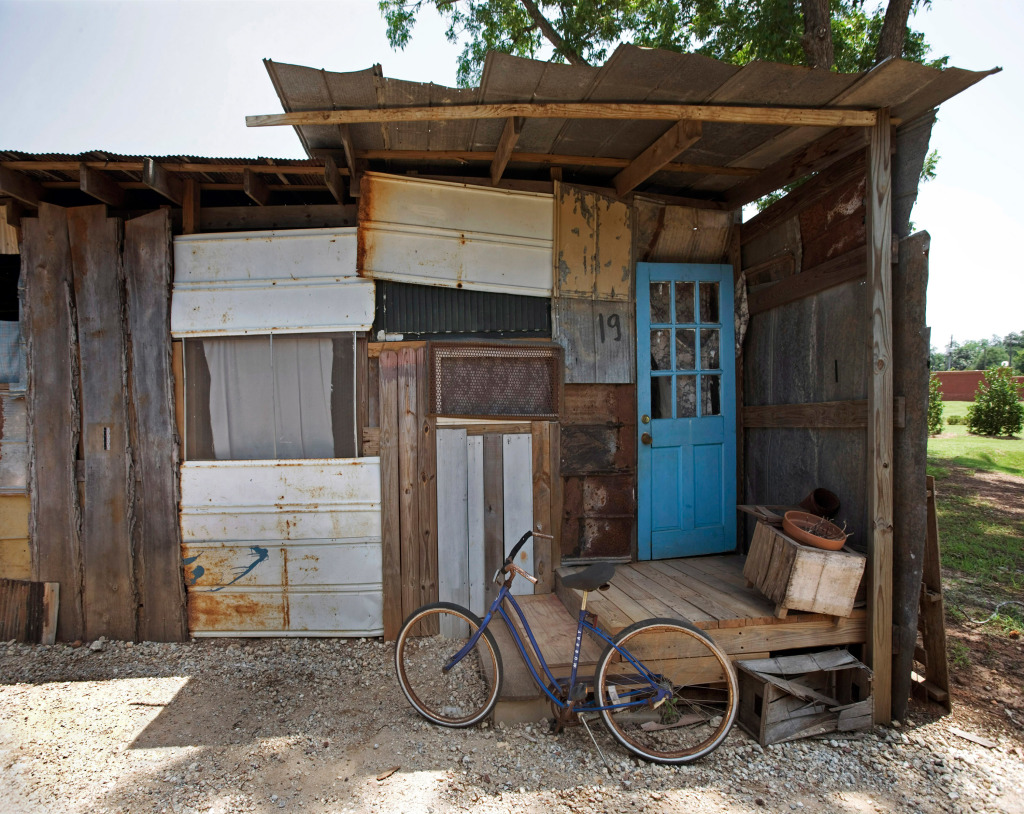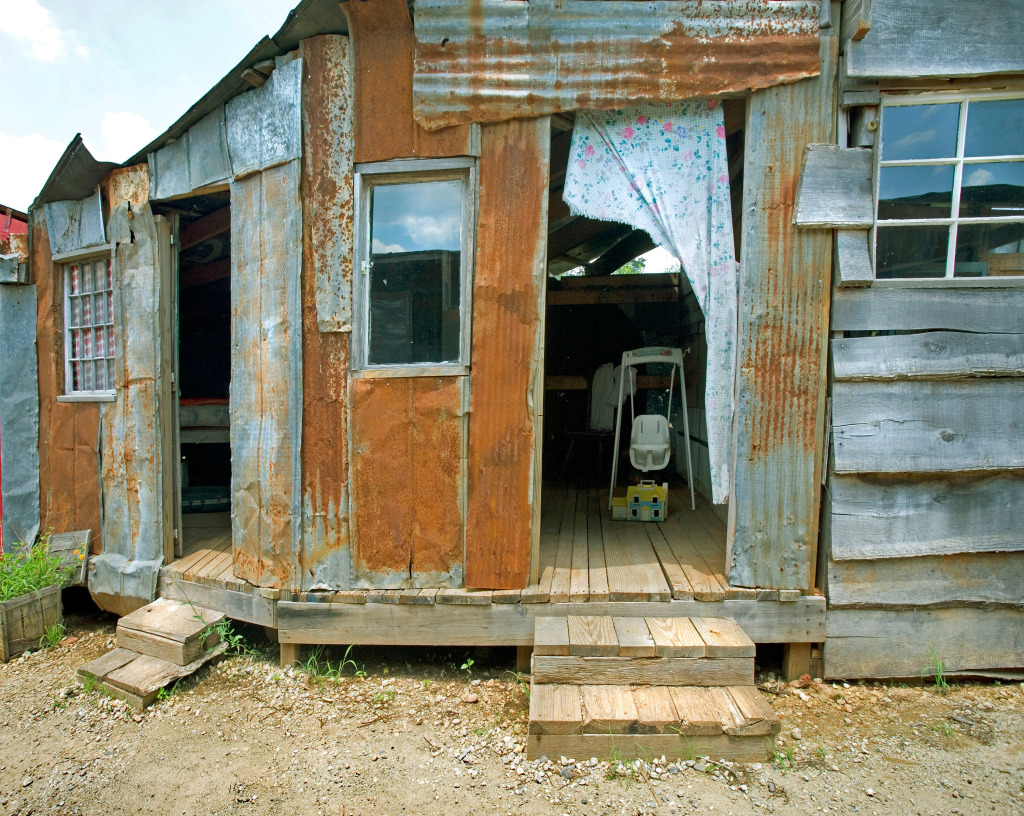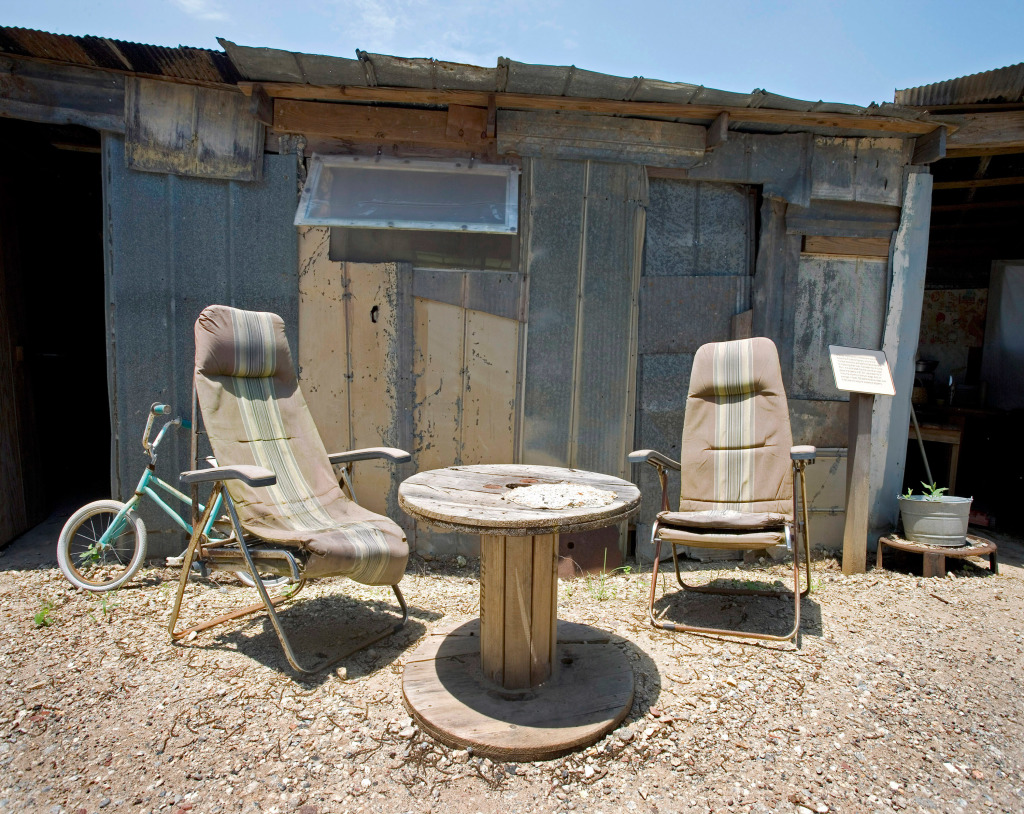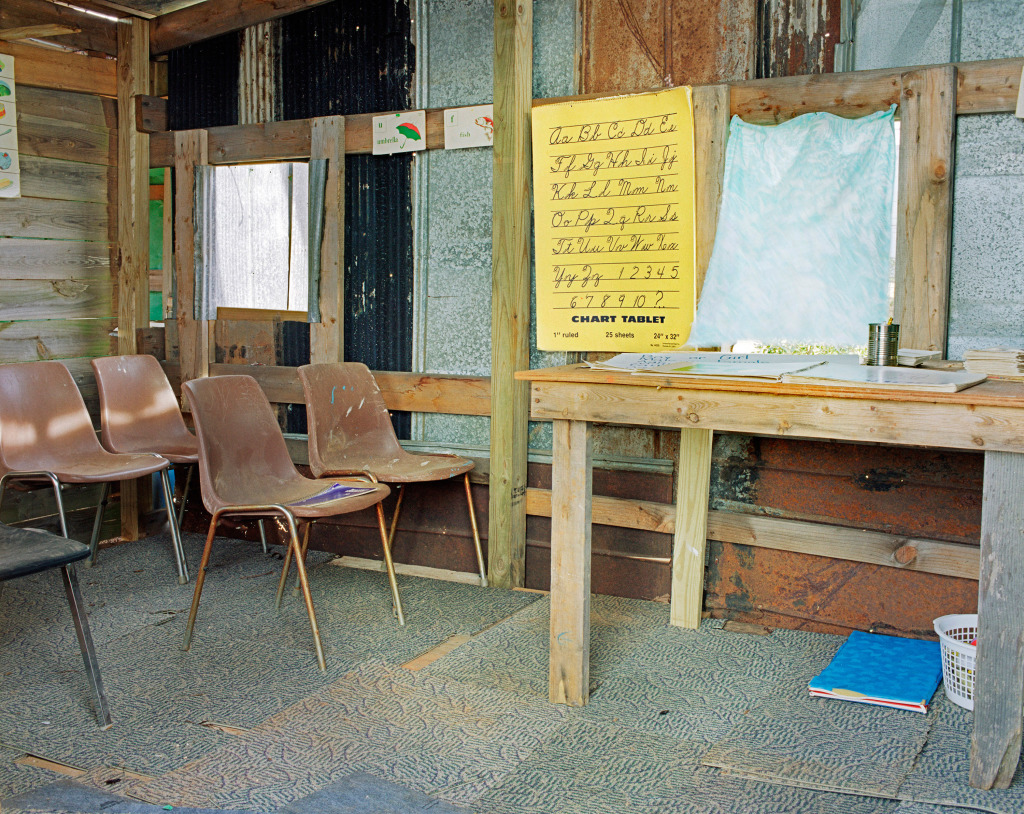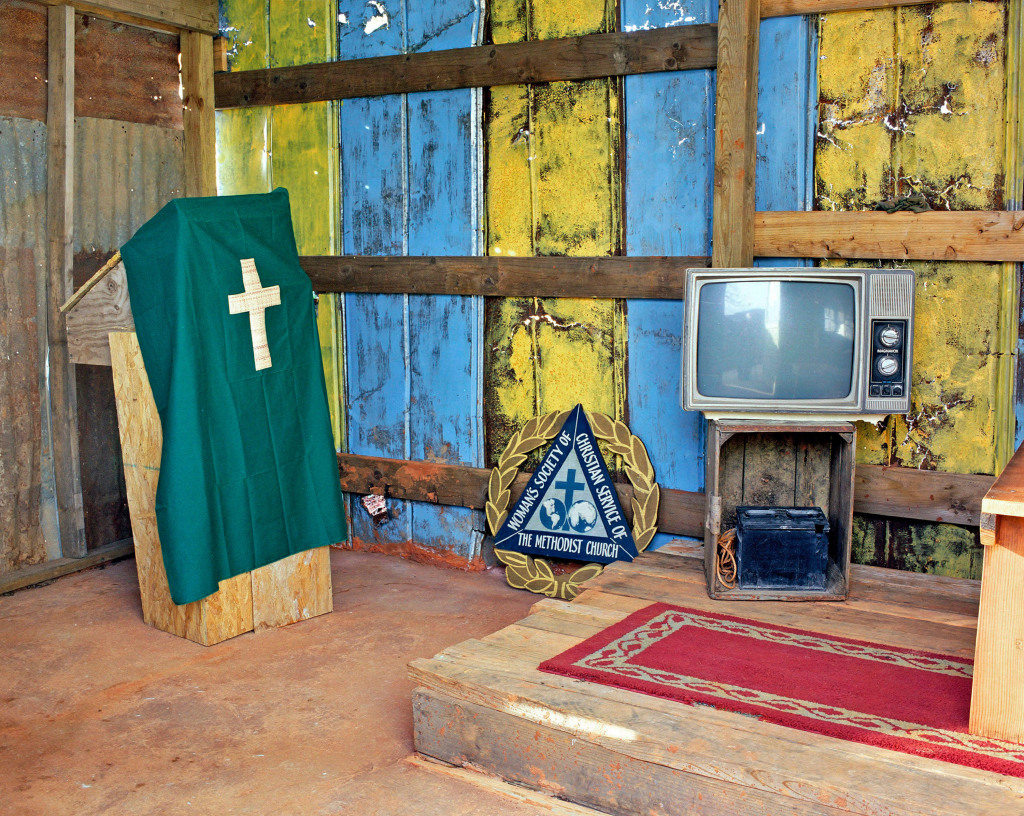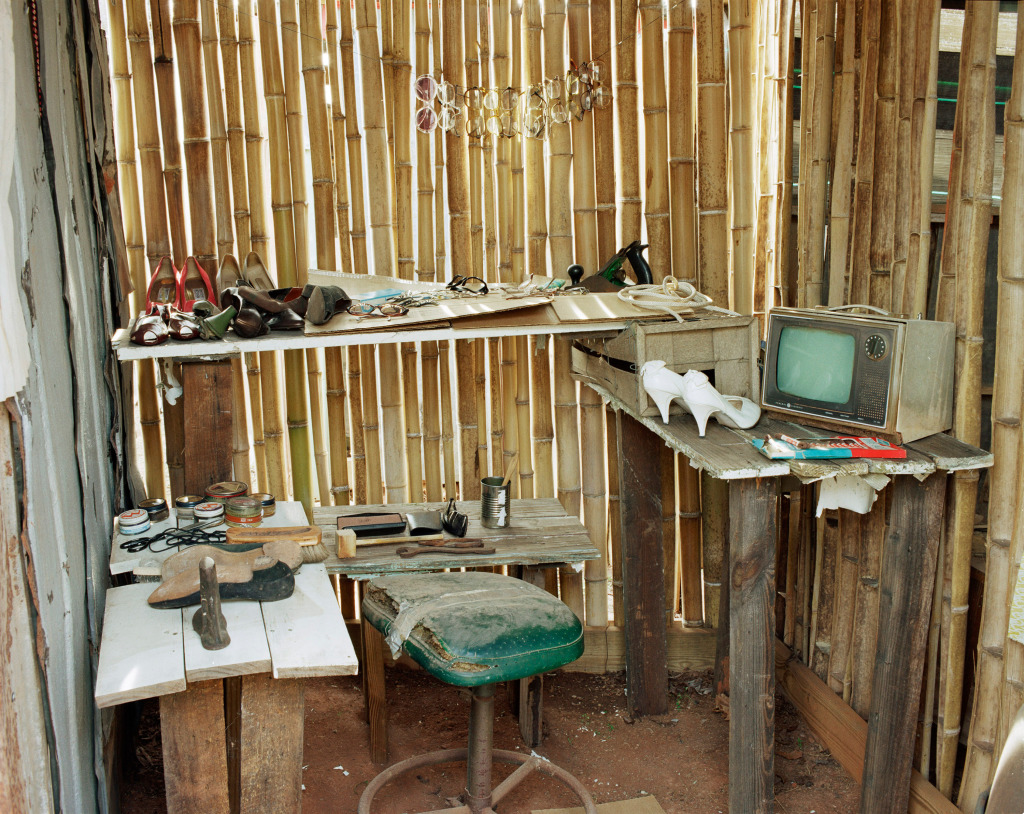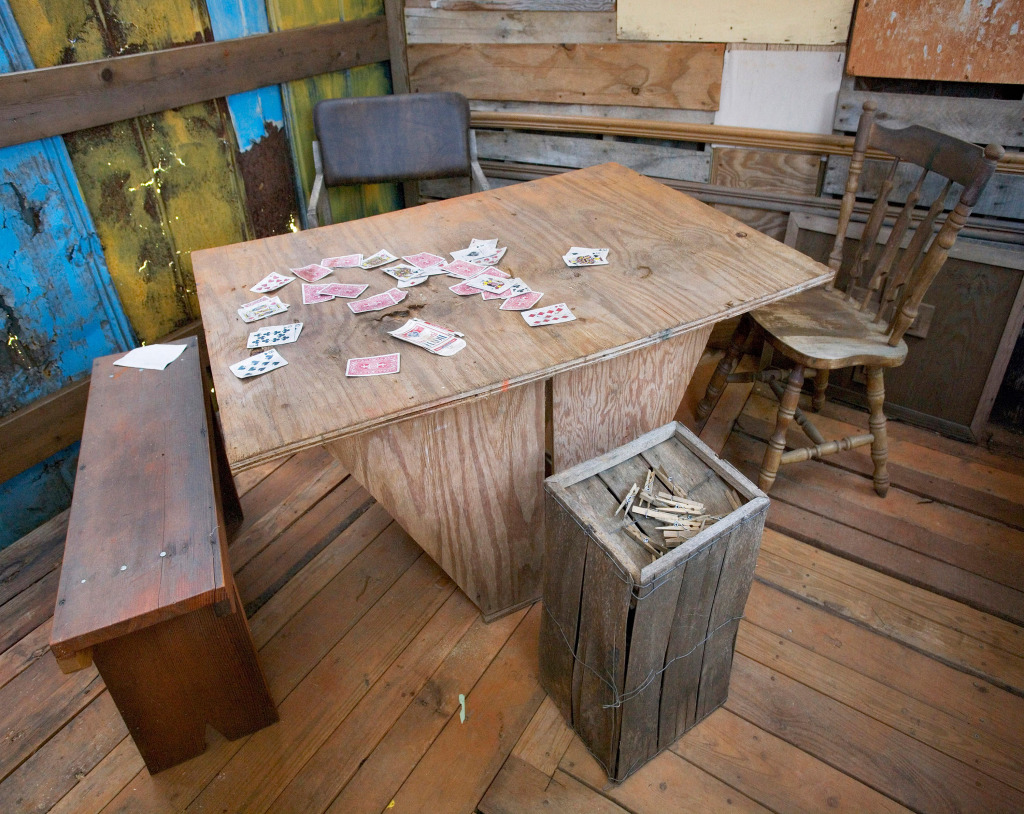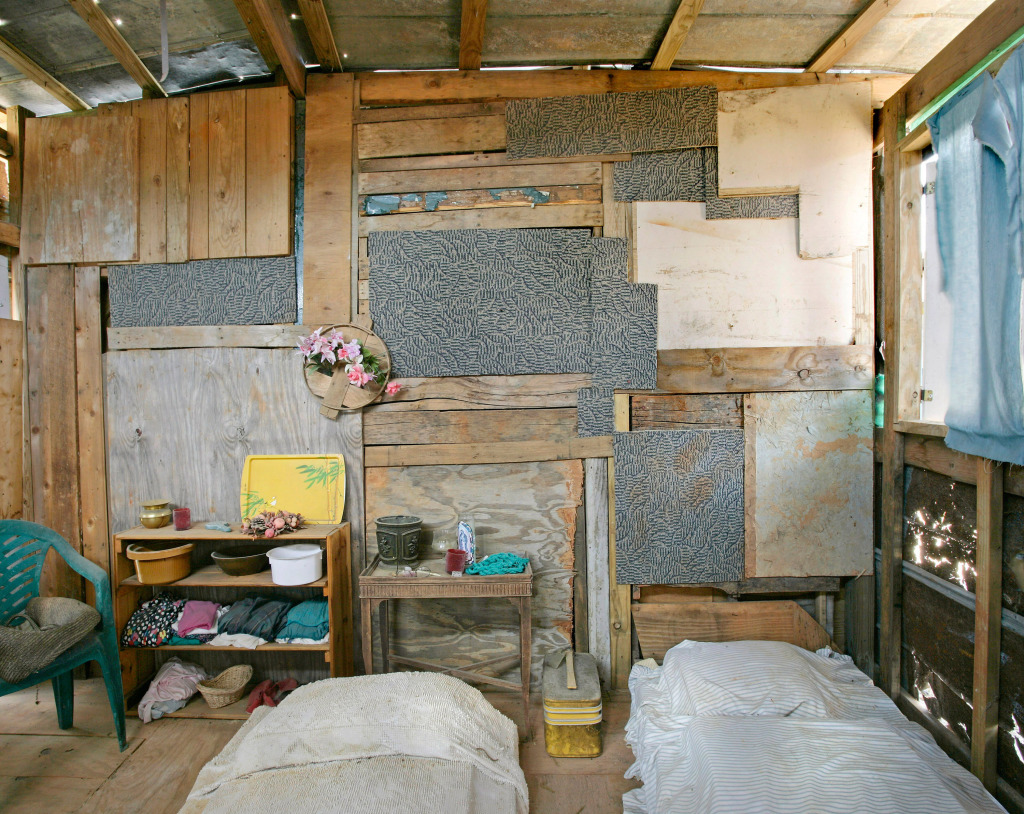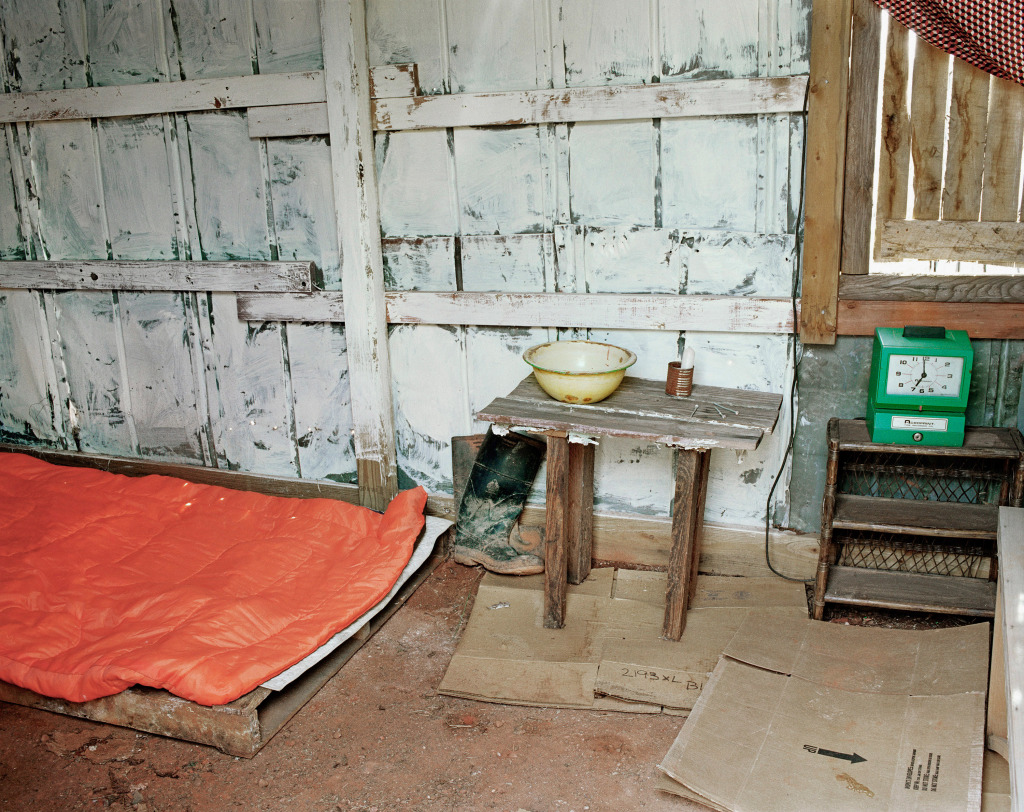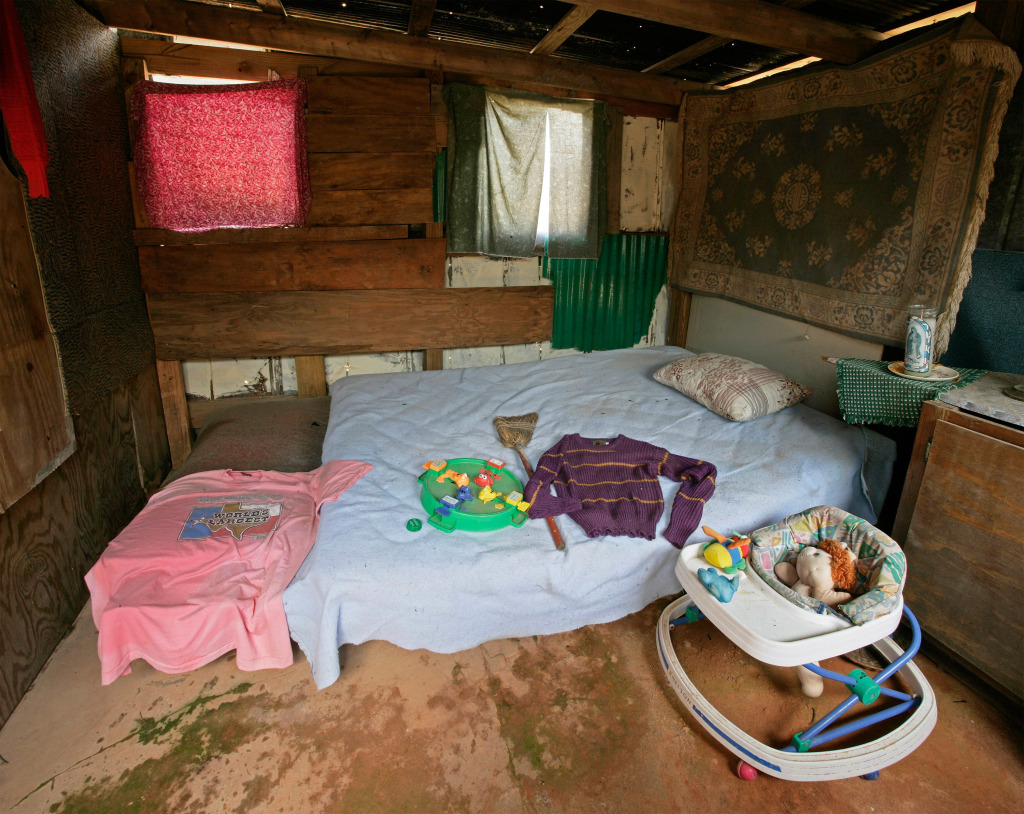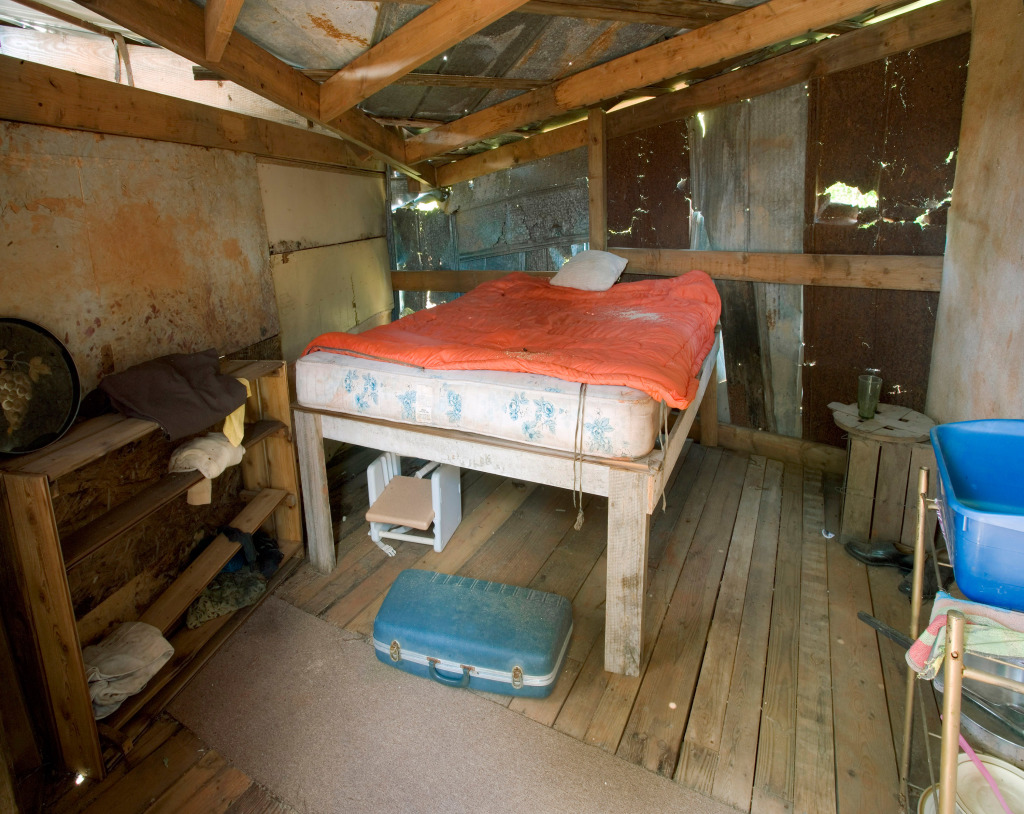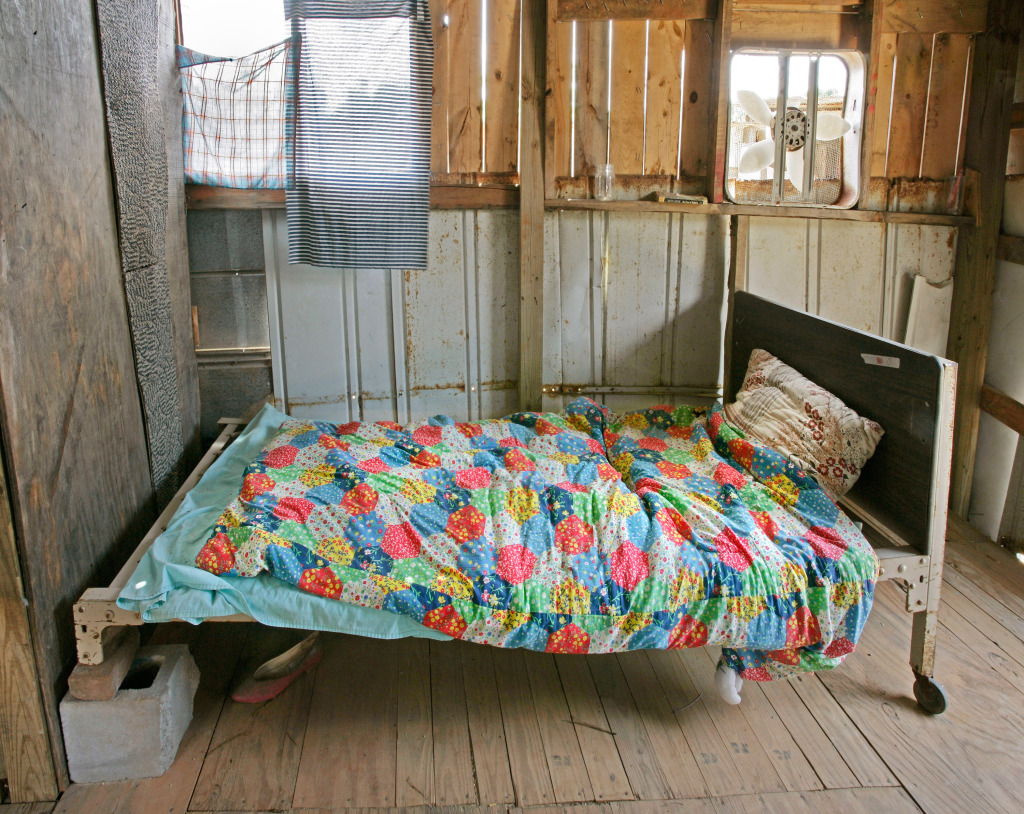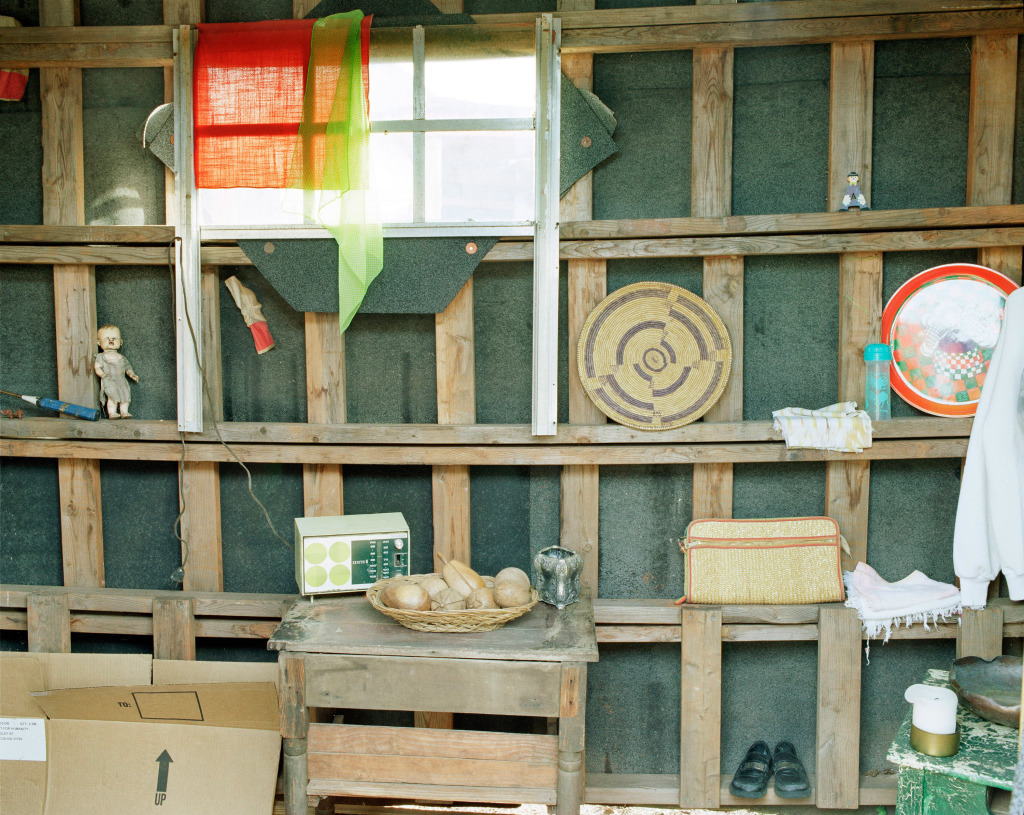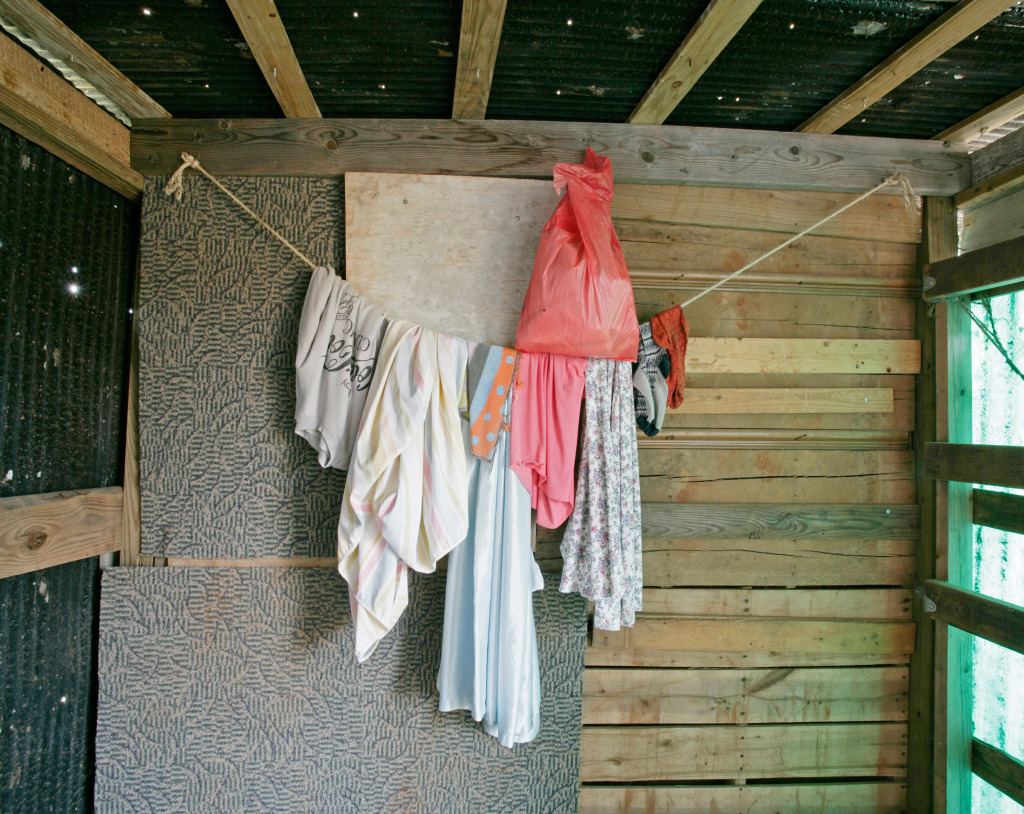


Global Village
The Global Village and Discovery Center in Americus, Georgia, USA is a small “poverty theme park” intended to educate visitors about the living conditions of the world’s poorest populations. It was built in 2003 by Habitat for Humanity, a Christian organization dedicated to eliminating substandard housing worldwide. Habitat for Humanity builds affordable housing around the world with the help of volunteers and international donations. Many volunteers travel to sites to work with locals in third world countries in a kind of slum tourism, building modest homes in regional styles with plumbing and electricity. Although Habitat for Humanity is based on Christian principles, it does not proselytize in the communities that it helps, and is considered a model charity. Its most prominent member is former U.S. president Jimmy Carter, whose home town of Plains, Georgia, is ten miles away from Americus.
One part of the display is designated the “Living in Poverty Area,” a recreation of some of the worst slum dwellings from Latin America, Africa, and Asia. Connected by a meandering path, each dwelling represents a different communal function, for example a school, a store, a home. Many of the materials and objects used in the exhibit are either imported from actual villages or are similar to what would be locally sourced first world detritus mined from nearby dumps. The displays are carefully constructed based on research and photographs.
Even though the Global Village is located in one of the poorest regions of Georgia, and Habitat for Humanity has worked extensively inside the U.S., it does not show examples of substandard American housing, perhaps because intense poverty is still largely perceived as a external, third world problem.The Global Village exhibits avoid political discussions about present Western economic and military policies in the developing world, or the lasting impact of European colonialism and the Christian missionaries’ participation in it.The structures within the Global Village portray the originals as temporary dwellings to be improved upon. A consequence of global warming, war, rural exodus, and famine has already been an increase in shantytowns, favelas, and tent cities not as temporary housing but as permanent urban settlements inhabited by the poor.
Andrea Robbins and Max Becher 2003/2005
